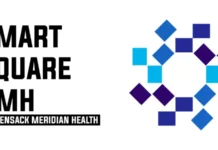Health insurance is a critical component of financial planning in India, and when it comes to insuring a group, such as employees in a company or members of an organization, group health insurance policies offer a cost-effective and efficient solution. These policies not only provide medical coverage to a group but can also be tailored to suit the needs and requirements of the members. In a country where healthcare costs are rising steadily, and health issues can strike unexpectedly, having a well-customized group health insurance policy can be a game-changer. In this blog, let us delve into the nuances of customizing group health insurance policies in India to ensure optimal coverage for the insured members.
Understanding Group Health Insurance in India
Group insurance is a type of policy that provides coverage to a defined group of people. These groups can vary widely, ranging from employees of a company, members of a club or association, to beneficiaries of government schemes. Group health insurance policies are typically more affordable than individual policies because they are negotiated in bulk, which often leads to cost savings. Moreover, these policies are easier to administer, making them a popular choice for employers and organizations.
In India, the insurance market offers a plethora of group health insurance policies catering to diverse groups. These policies usually cover a range of medical expenses, including hospitalization costs, doctor’s fees, diagnostic tests, and sometimes even additional benefits like maternity coverage, dental care, and wellness programs. While group policies provide a good base of coverage, they can be further customized to meet the specific needs and preferences of the group members. Customization not only enhances the policy’s relevance but also ensures that the coverage is optimal for the group’s unique requirements.
The Significance of Customization
Customization is the process of tailoring a group health insurance policy to align with the distinct needs and preferences of the insured group. In India, where healthcare is diverse and the health status of individuals can vary significantly, customization is crucial for availing optimal coverage. Here’s why customization matters:
Meeting Specific Needs: Every group is unique, and their healthcare needs may differ. For example, a group of young professionals may prioritize coverage for accidents and critical illnesses, while a group of senior citizens may require more comprehensive coverage for age-related conditions. Customization allows the policy to address these specific needs effectively.
Budget Flexibility: Customization empowers the policyholders to adjust the coverage according to their budget constraints. It ensures that the group gets the best value for their premium payments while maintaining affordability.
Enhancing Employee Satisfaction: In the case of corporate group health insurance, customization can be a valuable tool to enhance employee satisfaction. It demonstrates the employer’s commitment to the well-being of their workforce, which can boost morale and loyalty among employees.
Preventing Over-Insuring or Under-Insuring: Without customization, a group may end up with coverage that is either excessive or insufficient. Over-insuring leads to unnecessary premium expenses, while under-insuring can leave members financially vulnerable. Customization ensures that coverage is precisely aligned with the group’s requirements.
Steps to Customize Group Health Insurance
Customizing a group health insurance policy in India involves several steps. It’s essential to navigate these steps carefully to ensure that the policy provides optimal coverage for the insured members. Here’s a detailed guide:
-
Identify the Group’s Profile
The first step in customization is understanding the group’s profile. This includes gathering information about the members’ ages, health conditions, and specific healthcare needs. For corporate group policies, understanding the demographics and health status of the employees is crucial. For other groups, such as members of an organization or club, a survey or questionnaire can help collect relevant data.
-
Define Coverage Objectives
Once the group’s profile is clear, it’s time to define the coverage objectives. What are the group’s primary healthcare concerns? What types of medical expenses are most relevant to them? For example, a group of young families may prioritize maternity coverage, while a group of senior citizens may require extensive coverage for age-related ailments.
-
Assess Available Options
India’s insurance market offers a wide range of group health insurance policies. It’s essential to assess the available options from various insurance providers. Consider factors like coverage limits, premium rates, and additional benefits. This evaluation helps in selecting the base policy that aligns most closely with the group’s needs.
-
Add Riders and Add-Ons
Riders and add-ons are supplementary features that can be added to a group health insurance policy to enhance coverage. Common riders include critical illness coverage, maternity benefits, dental care, and wellness programs. Depending on the group’s specific needs, select the relevant riders to bolster the policy’s coverage.
-
Determine Coverage Limits
The coverage limits, also known as the sum insured, should be determined based on the group’s profile and objectives. It’s important to strike a balance between providing adequate coverage and maintaining affordability. Consider the group’s budget constraints and health risks to arrive at an appropriate coverage limit.
-
Consider Network Hospitals
Many group health insurance policies in India come with a network of hospitals and healthcare providers where cashless claims can be availed. Evaluate the list of network hospitals to ensure that it includes facilities that are convenient and preferred by the group members. Access to a wide network of hospitals is especially crucial for emergency situations.
-
Review Pre-Existing Condition Coverage
Pre-existing medical conditions are typically excluded from coverage during the initial waiting period of a health insurance policy. It’s essential to review this aspect, as some group members may have pre-existing conditions. Consider policies that have shorter waiting periods or options to reduce waiting periods through payment of additional premiums.
-
Evaluate Premium Costs
Premium costs are a significant consideration when customizing a group health insurance policy. While adding riders and enhancing coverage is essential, it’s equally important to ensure that the premiums remain affordable for the group. Carefully evaluate the cost implications of customization and adjust the coverage accordingly.
-
Seek Professional Guidance
Customizing group health insurance policies can be complex, and it’s advisable to seek professional guidance. Insurance brokers or consultants can provide valuable insights into policy selection and customization, ensuring that the group makes informed decisions.
Case Study: Customizing Corporate Group Health Insurance
To illustrate the significance of customization, let’s consider a case study of a company customizing its corporate group health insurance policy for its employees:
Company Profile: ABC Corporation is a multinational IT company with a diverse workforce. The employees’ ages range from mid-20s to late 50s, with varying healthcare needs.
Coverage Objectives: ABC Corporation aims to provide comprehensive healthcare coverage that caters to the diverse needs of its employees. The objectives include:
Inclusive Coverage: Ensure that all employees, regardless of age or health condition, have access to quality healthcare.
Wellness Focus: Promote employee well-being by including wellness programs and preventive healthcare measures.
Cost-Effective: Maintain competitive premium rates while offering robust coverage.
Emergency Coverage: Guarantee access to emergency medical services, including cashless hospitalization, across a wide network of hospitals.
Customization Steps:
Profile Analysis: ABC Corporation conducts an employee health survey to gather data on their health status, demographics, and healthcare preferences.
Coverage Selection: After evaluating various policies, the company chooses a base policy that aligns with the employees’ needs.
Adding Riders: To enhance coverage, ABC Corporation opts for riders like critical illness coverage, maternity benefits, and dental care.
Coverage Limits: The coverage limits are determined based on the age and health risks of employees.
Network Hospitals: The chosen policy includes a network of hospitals that are preferred by the majority of employees.
Pre-Existing Condition Coverage: ABC Corporation selects a policy with a shorter waiting period for pre-existing conditions.
Premium Evaluation: The HR department works closely with insurance consultants to evaluate premium costs and make necessary adjustments.
By following these steps and customizing their corporate group health insurance policy, ABC Corporation ensures that its employees receive comprehensive and tailored coverage, promoting their health and well-being while managing costs effectively.
Conclusion
Customizing group health insurance policies in India is a strategic approach to ensure optimal coverage for the insured members. Whether it’s a corporate group, an organization, or any defined group of individuals, customization allows policyholders to tailor their insurance to meet specific needs and preferences. It empowers them to strike a balance between providing adequate coverage and maintaining affordability. In a country where healthcare costs are escalating, and health risks are diverse, customization is the key to navigating the complex landscape of health insurance effectively. It ensures that the group’s unique healthcare requirements are met, ultimately contributing to the well-being and financial security of its members. Customization, therefore, is not just an option but a necessity when it comes to group health insurance in India.
Read Also: Choosing a Family Private Health Insurance Plan



































































